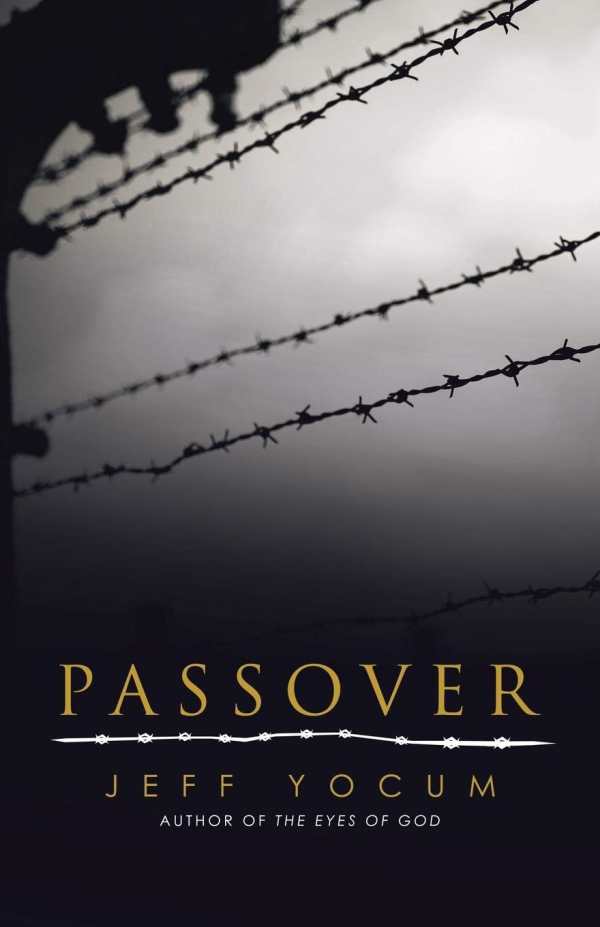Passover
Passover is a novel that powerfully reevaluates the evil choices individuals make, choices often disguised as solutions for the greater good.
Jeff Yocum’s compelling novel Passover conveys the banality of evil and follows cycles of abuse.
Structured around parallel narratives set in 2019 and 1944, the book focuses on Chris Malone, a CDC pathologist investigating an outbreak of illicit drug-related deaths in rural America, and Jakob Bauer, a four-year-old boy taken to Auschwitz-Birkenau with his two twin sisters. Bauer and the twins undergo Mengele’s experiments before Bauer is liberated by the Russians; his life converges with Malone’s in 2019, as Malone investigates the deaths.
Passover employs a chiastic structure to bring its story lines together. The pivot point of the book is the story of Bauer’s first Passover seder after his liberation. In the biblical story, the Angel of Death passes over observant Israelites; in 1945, Bauer’s seder celebrates not only his freedom from the camps, but also having survived the medical experiment under Mengele, who came to be known as the “Angel of Death.” As Bauer matures, he is inspired to found a pharmaceutical company to create medicines to save millions. His innovative methods come from a desire to find any means possible to save humanity from the worst diseases.
Malone and Bauer’s investigation finds that the victims were targeted, rather than that they randomly consumed the same contaminated batch of drugs. As the narrative progresses, it becomes clear that the perpetrator selected individuals as a test group in a plan to kill millions. The perpetrator’s choice of targets is fueled by a personal vendetta (unlike the racial arguments of the Third Reich) but with the same intended results: six million victims intended to cull a group perceived to be a threat to society (herein: drug abusers).
Yocum’s use of both historical figures and fictional leads grounds the novel in the realities of the Holocaust, and his narrative succeeds because of its attention to historical accuracy and detail.
Passover, with its dual narratives and shocking climax, explores the nature of abuse, and how those who survive horrible trauma often become future abusers. It explores George Santayana’s adage that “those who cannot remember the past are condemned to repeat it.” Its themes and message speak to current American political problems, where antisemitism and racial attacks have become increasingly prevalent.
Passover is a novel that powerfully reevaluates the evil choices individuals make, choices often disguised as solutions for the greater good. Its plausible present is a warning about possible futures.
Reviewed by
Holly Jordan
Disclosure: This article is not an endorsement, but a review. The publisher of this book provided free copies of the book and paid a small fee to have their book reviewed by a professional reviewer. Foreword Reviews and Clarion Reviews make no guarantee that the publisher will receive a positive review. Foreword Magazine, Inc. is disclosing this in accordance with the Federal Trade Commission’s 16 CFR, Part 255.

